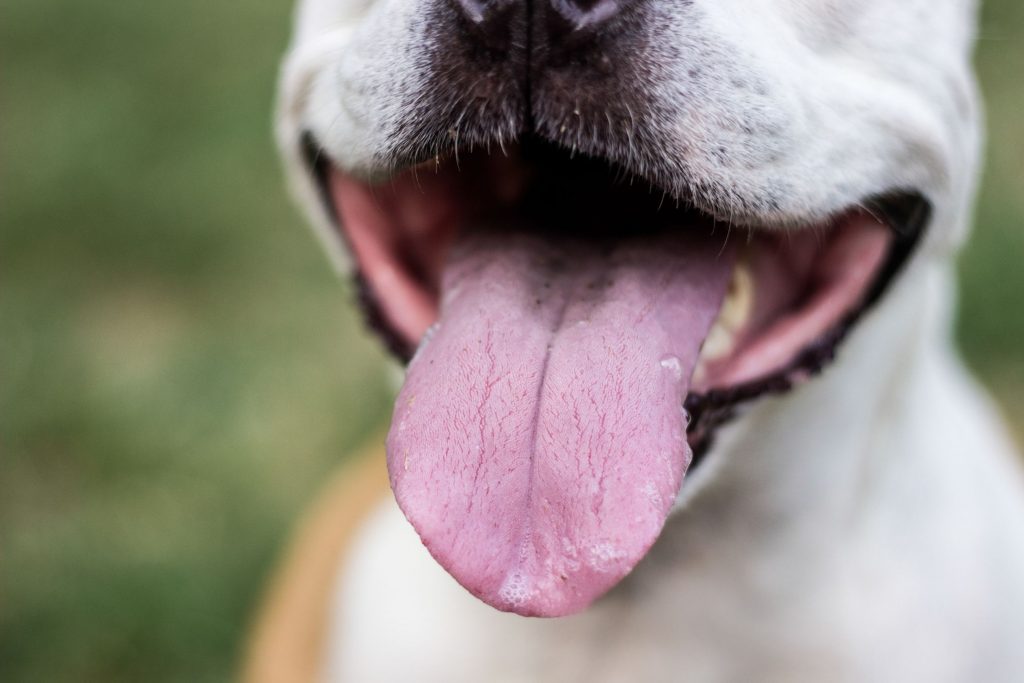It may be a little like asking why is the sky blue, but it’s perfectly natural to wonder why dogs slobber all over the place. Sure, some breeds are less likely to visibly salivate, whereas others seem to be characterized by a high drool factor. What causes thick, ropy streams of spit to dangle from certain canine lips? And, perhaps more importantly, what can owners do about slobbering?
Physical Attributes
Dogs slobber because, well, they can. Yes, it can be off-putting, but recognizing drool as a normal feature of a healthy digestive system may help with an owner’s acceptance of it.
Saliva helps dogs with smelling, tasting, and chewing of food. The salivary glands in and around the mouth secrete saliva before, during, and after meals to lubricate the mouth and esophagus. Plus, saliva has certain digestive enzymes that help break down food and move it through the GI tract.
Mouth-Watering Goodness?
Have you ever noticed that when you’re in the kitchen preparing a meal your dog’s slobbering goes on overdrive? The anticipation that they may be about to enjoy something savory and delicious triggers the salivary glands to produce the watery substance famous for food lubrication.
Dog owners can prevent this from happening by enlisting a friend or family member to occupy the dog during peak meal prep times. If they are out of the house and getting exercise while all the good food smells are wafting around, they won’t be subject to their mouth watering powers.
Loose Lips
Dog breeds with larger mouths tend to have loose lips that lack the ability to trap slobber when it accumulates in the mouth. The following breeds take slobber to a whole new level:
- St. Bernards
- Mastiffs
- Bulldogs
- Boxers
- Newfoundlands
- Bloodhounds
Other smaller breeds can (and will) drool occasionally, but may not require the constant maintenance required in households with large breeds.
When to Worry
Excessive or hyper-salivation can be linked to various potential health problems, including accidental ingestion of toxic or poisonous substances. It can also be a symptom of:
- Dental disease
- Anxiety or stress
- Heat stroke
- Motion sickness
- Foreign body obstruction
- Bloat
Please call us at (404) 633‑6163 if you know or suspect your dog got into something they shouldn’t have. Waiting for symptoms like hyper-salivation to resolve on their own can complicate problems, or even lead to life-threatening emergencies.
Clean Up Crew
When dogs slobber, owners can combat the build-up by attaching a bandana to the dog’s collar. When saliva starts to pool up in the corners of the mouth, simply dab it away with the bandana (don’t forget to replace it throughout the day with a clean one). Also, protect furniture with absorbent towels or cloths, and keep a mop ready to clean up any drool left behind on the floor.
When you stay in front of slobber, it may become less of an obstacle to peaceful cohabitation. If you have further questions about why dogs slobber, and what you can do about it, please let us know. We’re always here for you at Clairmont Animal Hospital.


